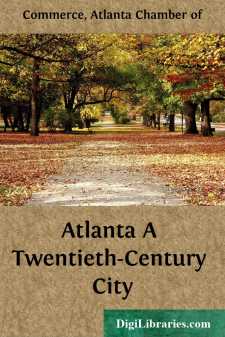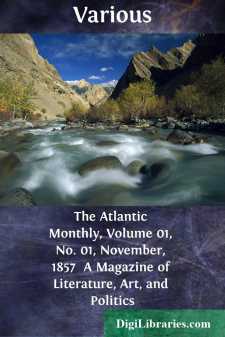Categories
- Antiques & Collectibles 13
- Architecture 36
- Art 48
- Bibles 22
- Biography & Autobiography 816
- Body, Mind & Spirit 145
- Business & Economics 28
- Children's Books 17
- Children's Fiction 14
- Computers 4
- Cooking 94
- Crafts & Hobbies 4
- Drama 346
- Education 58
- Family & Relationships 59
- Fiction 11834
- Foreign Language Study 3
- Games 19
- Gardening 17
- Health & Fitness 34
- History 1378
- House & Home 1
- Humor 147
- Juvenile Fiction 1873
- Juvenile Nonfiction 202
- Language Arts & Disciplines 89
- Law 16
- Literary Collections 686
- Literary Criticism 179
- Mathematics 13
- Medical 41
- Music 40
- Nature 179
- Non-Classifiable 1768
- Performing Arts 7
- Periodicals 1453
- Philosophy 66
- Photography 2
- Poetry 897
- Political Science 203
- Psychology 45
- Reference 154
- Religion 516
- Science 126
- Self-Help 85
- Social Science 82
- Sports & Recreation 34
- Study Aids 3
- Technology & Engineering 59
- Transportation 23
- Travel 463
- True Crime 29
Sort by:
by:
Lilian Bell
CHAPTER I MARY I have never dared even inquire why our best man began calling my husband the Angel. He was with us a great deal during the first months of our marriage, and he is very observing, so I decided to let sleeping dogs lie. I, too, am observing. It is only fair to state, in justice to the best man, that I am a woman of emotional mountain peaks and dark, deep valleys, while the Angel is one...
more...
How Atlanta Grew. The Atlanta of to-day is a growth of thirty-eight years. Twice has the upbuilding of a city on this site demonstrated its natural advantages. Within a few years before the war Atlanta had become a bustling town of 11,000 inhabitants, and during the three years which intervened before its destruction the place was the seat of varied and important industries, whose principal object was...
more...
by:
Various
VI. THE CARMINE. The only part of this ancient church which escaped destruction by fire in 1771 was, most fortunately, the famous Brancacci chapel. Here are the frescos by Masolino da Panicale, who died in the early part of the fifteenth century,вÐâthe Preaching of Saint Peter, and the Healing of the Sick. His scholar, Masaccio, (1402-1443,) continued the series, the completion of which was...
more...
by:
Various
NOTES ON DOMESTIC ARCHITECTURE. If building many houses could teach us to build them well, surely we ought to excel in this matter. Never was there such a house-building people. In other countries the laws interfere,—or customs, traditions, and circumstances as strong as laws; either capital is wanting, or the possession of land, or there are already houses enough. If a man inherit a house, he is not...
more...
by:
Various
DOUGLAS JERROLD. My personal acquaintance with Douglas Jerrold began in the spring of 1851. I had always had a keen relish for his wit and fancy; I felt a peculiar interest in a man who, like myself, had started in life in the Navy; and one of the things poor Douglas prided himself on was his readiness to know and recognize young fellows fighting in his own profession. I shall not soon forget the...
more...
by:
Roger Dee
The third night of the Marco Four's landfall on the moonless Altarian planet was a repetition of the two before it, a nine-hour intermission of drowsy, pastoral peace. Navigator Arthur Farrell—it was his turn to stand watch—was sitting at an open-side port with a magnoscanner ready; but in spite of his vigilance he had not exposed a film when the inevitable pre-dawn rainbow began to shimmer...
more...
by:
Various
AMERICAN ANTIQUITY. The results of the past ten or fifteen years in historical investigation are exceedingly mortifying to any one who has been proud to call himself a student of History. We had thought, perhaps, that we knew something of the origin of human events and the gradual development from the past into the world of to-day. We had read Herodotus, and Gibbon, and Gillies, and done manful duty...
more...
by:
Various
THE GREAT FAILURE. The crucial fact, in this epoch of commercial catastrophes, is not the stoppage of Smith, Jones, and Robinson,—nor the suspension of specie payments by a greater or less number of banks,—but the paralysis of the trade of the civilized globe. We have had presented to us, within the last quarter, the remarkable, though by no means novel, spectacle of a sudden overthrow of...
more...
by:
Henry Sweet
The want of an introduction to the study of Old-English has long been felt. Vernon's Anglo-Saxon Guide was an admirable book for its time, but has long been completely antiquated. I was therefore obliged to make my Anglo-Saxon Reader a somewhat unsatisfactory compromise between an elementary primer and a manual for advanced students, but I always looked forward to producing a strictly elementary...
more...
by:
Various
THE CATACOMBS OF ROME. ————parti elette Di Roma, che son state cimitero Alla milizia che Pietro seguette. PARADISO, c. ix. "Roma Sotterranea,"—the underground Rome of the dead,—the buried city of graves. Sacred is the dust of its narrow streets. Blessed were those who, having died for their faith, were laid to rest in its chambers. In pace is the epitaph that marks the places where...
more...











